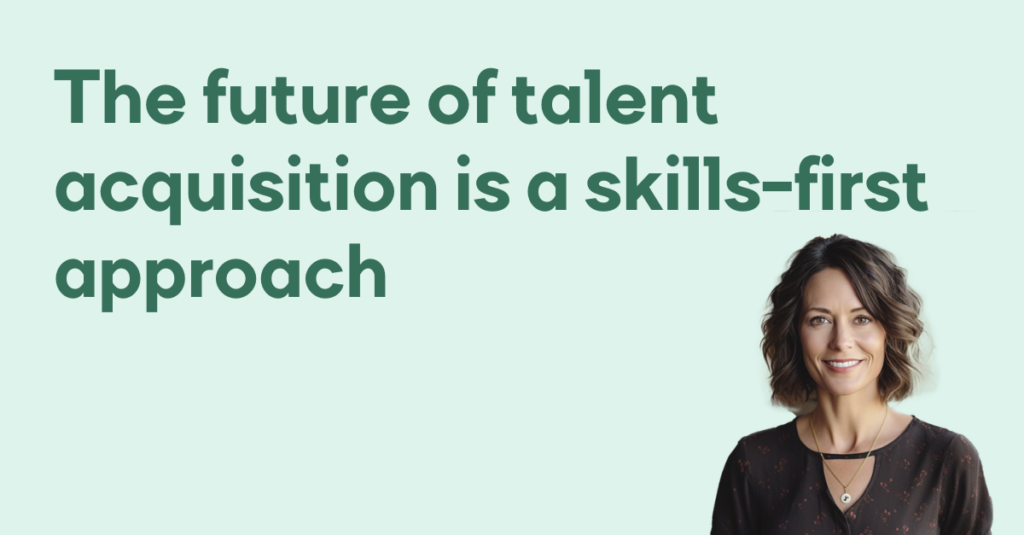In recent years, the world of talent acquisition has undergone some significant changes. Traditional methods that focused primarily on educational qualifications and work experience are being replaced by more dynamic approaches to hiring. This shift is driven by the need for organisations to adapt to rapidly changing market conditions and technological advancements.

One of the most notable trends in this evolution is the move towards a skills-first approach. This method prioritises specific skills and competencies that candidates bring to the table, rather than their formal qualifications or job history. By focusing on what individuals can do, rather than where they have been, companies can better align their hiring practices with their strategic goals.
Why skills matter more than ever
The modern workplace is characterised by constant change and innovation. As a result, the skills required to succeed in many roles are evolving at a rapid pace. Traditional hiring criteria, such as degrees and years of experience, often fail to capture the full range of a candidate’s abilities and potential.
Skills-first hiring addresses this gap by emphasising the specific competencies that are most relevant to a given role. This approach allows employers to identify candidates who possess the exact skills needed to excel, regardless of their background. It also helps to create a more diverse and inclusive workforce, as it reduces the emphasis on traditional credentials that may not be accessible to all candidates.
The Role of soft skills in modern recruitment
While technical skills (hard skills) are undoubtedly important, soft skills are increasingly recognised as being more critical to success at work. Attributes such as communication, teamwork, problem-solving, and adaptability are essential for navigating the complexities of modern work environments.
Soft skills are often more difficult to quantify than technical skills, but they can be just as important in determining a candidate’s suitability for a role. By incorporating assessments of soft skills into the hiring process, companies can gain a more holistic understanding of a candidate’s potential and ensure a better fit for their organisational culture.
Implementing a skills-first approach
Transitioning to a skills-first hiring model requires a strategic shift in how organisations approach talent acquisition. This involves rethinking job descriptions, interview processes, and assessment methods to prioritise skills over traditional qualifications.
One effective strategy is to use skills-based assessments to evaluate candidates. These assessments can take various forms, including practical tests, simulations, and behavioural interviews. By focusing on real-world scenarios and tasks, employers can gain a clearer picture of a candidate’s abilities and how they will perform in the role.
Benefits of a skills-first hiring model
Adopting a skills-first approach to talent acquisition offers numerous benefits for both employers and candidates. For employers, this model can lead to better hiring outcomes, as it allows for a more precise match between job requirements and candidate capabilities. This can result in higher employee performance, increased job satisfaction, and reduced turnover.
For candidates, a skills-first approach provides a more transparent hiring process. It allows individuals to showcase their abilities and potential, rather than being judged solely on their formal qualifications or work history. This can open up opportunities for a wider range of candidates and help to create a more diverse and inclusive workforce.
Challenges and considerations
While the benefits of a skills-first approach are clear, there are also challenges to consider. Implementing this model requires a significant investment in time and resources, as well as a willingness to change established practices. Organisations must be prepared to invest in training and development to ensure that their hiring teams are equipped to assess skills effectively.
Additionally, there is a need for robust tools and technologies to support skills-based assessments. This includes platforms for administering tests, tracking results, and providing feedback to candidates. By leveraging advanced technologies, companies can streamline the assessment process and ensure that it is both fair and effective.
The Future of talent acquisition
As the world of work continues to evolve, the importance of a skills-first approach to talent acquisition will only grow. Organisations that embrace this model will be better positioned to adapt to changing market conditions and stay ahead of the competition.
By focusing on the skills and competencies that matter most, companies can build a more agile and resilient workforce. This will enable them to respond more effectively to new challenges and opportunities, and ultimately drive long-term success.
Conclusion
The shift towards a skills-first approach in talent acquisition represents a significant change in how organisations identify and hire talent. By prioritising skills over traditional qualifications, companies can create a more inclusive and effective hiring process that better aligns with their strategic goals.
As we move forward, it is essential for organisations to invest in the tools and technologies needed to support this model. By doing so, they can unlock the full potential of their workforce and achieve greater success in an increasingly competitive and dynamic market.



